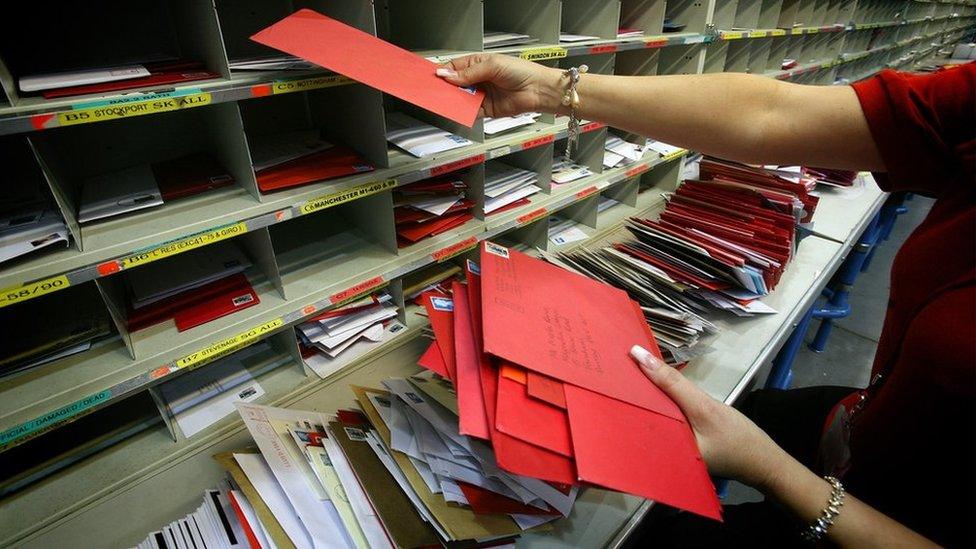The Vocabularist: Three different meanings of mail
- Published

The price of stamps is going up again. Which raises the complicated subject of where the word "mail" comes from.
WH Auden famously wrote "This is the Night Mail, Crossing the Border" for a 1936 Post Office film. The border was that between England and Scotland, where border reivers, sometimes clad in chain mail, extorted "black mail" from the local people.
That is three senses of "mail" in one paragraph. Reference books give three different unrelated origins for them.
Mail, in the sense of letters, originally meant a bag, and sometimes a travelling-trunk. "Malle" had been used in French from the 11th Century and mallette can still mean a bag or suitcase in French.
By the 17th Century it was common to talk of a post-bag as a "mail of letters", external and coaches and boats "carrying the mails". In the mid-18th Century Tobias Smollett wrote, external of a miser's fears "that rack his bosom while the mail is read", showing the word had been extended to the bag's contents too.
Chain mail comes from "maille", another 11th Century French word, thought to be from the Latin macula, which means "stain" or "spot" as in "immaculate". This became "mail" - originally a metal ring, one of many sewn together to make a garment for battle.

Himalayan thrush: Birds' plumage may be the link between spots and chain-mail
Maille also meant a spot in the plumage of a bird - and this might make the association between spots and armour easier to understand, since a bird's coat is made up of lots of little feathers, as a mail coat is of little rings.
And then there is "mail" meaning rent or payment. This dates back at least as far as the Anglo-Saxon Chronicle entry for 1049 when Edward the Confessor paid off nine warships ("scylode IX scypa of male", ie removed nine ships from pay).
But the word survived longer in Scotland and northern England, and it is in the Scots form that we have it - usually compounded as blackmail.
An Act of James VI in 1567 required that no-one accept protection from "the said thevis, or pay thame blak maill."
"Mail" in this sense is supposed to be related to Scandinavian words meaning "speech". The idea is that it came to mean an agreement, and therefore an agreed payment.
This seems very tenuous. One might almost think it more likely to come from mail meaning "bag".
Except that border blackmail was sometimes paid in cattle, and you can't easily get cattle into a bag.

The Vocabularist
Select topic "language" to follow the Vocabularist on the BBC News app

Subscribe to the BBC News Magazine's email newsletter, external to get articles sent to your inbox.